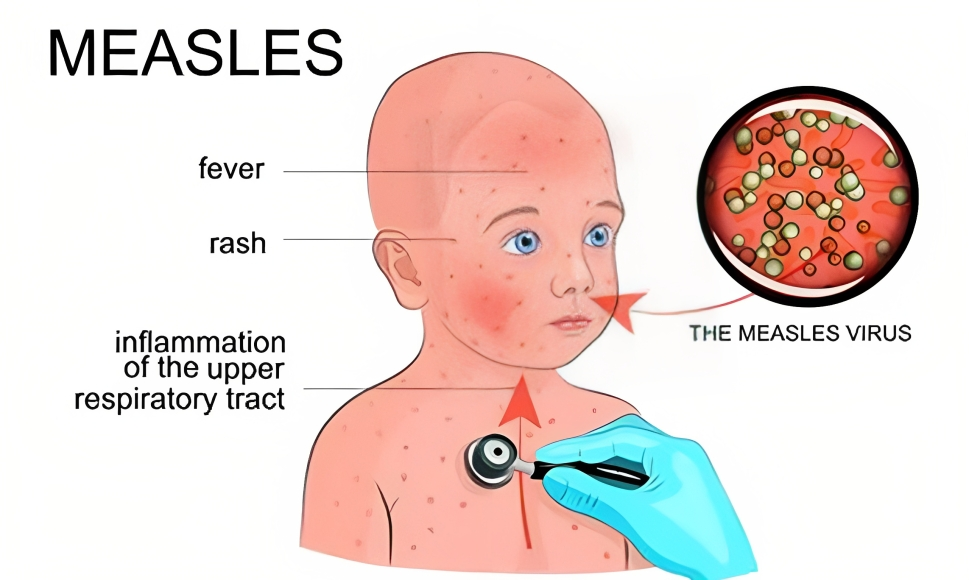Free Courses Sale ends Soon, Get It Now


Free Courses Sale ends Soon, Get It Now



Copyright infringement not intended
Context: The UK Health Security Agency (UKHSA) issued a warning about the possibility of a large-scale measles outbreak in London, which could result in tens of thousands of hospitalisations and several deaths. The agency said that despite an improvement in Measles, Mumps, Rubella (MMR) vaccination rates, London is still vulnerable to a resurgence of the disease.
Details
Measles: A Global Health Threat
About
Reason
Symptoms
Some of the possible complications of measles are:
Impact
Challenges
To prevent and control measles, there is a need for a coordinated and comprehensive approach that involves multiple stakeholders and sectors.
Steps need to be taken
Conclusion
Must-Read Articles:
MEASLES: https://www.iasgyan.in/daily-current-affairs/measles-11
|
PRACTICE QUESTION Q. What is the name of the vaccine that can prevent measles infection? A) MMR vaccine B) BCG vaccine C) DTaP vaccine D) IPV vaccine Answer: A Explanation: MMR vaccine protects against measles, mumps, and rubella (German measles). It is usually given in two doses, one at 12-15 months of age and another at 4-6 years of age. |
© 2024 iasgyan. All right reserved